Support for Birth, Postpartum & Beyond
Your birth support team can be made of many different health care providers- your Obstetrician, midwives, partner, friend- the list goes on. A doula is another option at your birth, and they offer so much more than just their calming presence. We sat down with Rikki Lee from the Doula Pod and The Parenthood Society to hear about her personal journey and what being a doula is all about.
About Rikki
My journey into this work started with my own experiences of birth and postpartum. My first birth was incredibly difficult—my son was born at 28 weeks, and while that was an unavoidable outcome, I felt incredibly uneducated about birth or my postpartum. For my second birth, I had a doula and planned a VBAC, which I was very lucky to have. I felt in control and truly educated. While an incredibly positive birth experience, my postpartum period was tough. I struggled with breastfeeding, had a baby who didn’t sleep much, and, like so many mums, I didn’t ask for help. I ended up experiencing postpartum depression, and I remember feeling completely exhausted and overwhelmed.
Looking back, I wish I had known that it’s okay to ask for help. The sooner you reach out for support, the better. That’s why I became a doula—to ensure that no mum ever feels like she has to struggle alone. The postpartum space is incredibly important to me because every mother deserves a strong support system and the tools to navigate this transition with confidence.
We asked Rikki to delve further into the role of a Doula so you can make an informed decision around who will be part of your birth team.
Understanding the Role of a Doula
A doula is a trained professional who provides emotional, physical, and informational support to mothers and families during pregnancy, birth, and postpartum. There are different types of doulas, including:
-
Birth doulas, who provide support throughout pregnancy and labour, offering reassurance, pain management techniques, and advocacy during birth.
-
Postpartum doulas, who support mums in the early weeks after birth, helping with newborn care, breastfeeding, emotional well-being, and even household tasks to ensure a smoother transition into motherhood.
-
Full-spectrum doulas, who may provide support across various reproductive experiences, including fertility, loss, or abortion.
Unlike medical professionals, doulas don’t provide clinical care—they focus on you, ensuring you feel heard, supported, and empowered.
Why Consider a Doula?
Having a baby is a life-changing event, and while there’s a lot of focus on preparing for birth, many parents don’t realise just how intense postpartum can be. A doula offers continuous, non-judgemental support, which can be life-changing during this vulnerable time.
Some of the biggest benefits I’ve seen include:
-
Mums feeling more confident and less overwhelmed in those early weeks.
-
Stronger breastfeeding support, which can make a huge difference in feeding success.
-
Reduced risk of postpartum depression or anxiety because mums feel emotionally supported.
-
Partners feeling more involved and supported as they navigate this transition too.
Many families say that hiring a doula was the best investment they made in their postpartum experience.
The difference between Doulas & Other Birth Workers
Doulas differ from midwives and obstetricians because we don’t provide medical care. While a midwife or doctor focuses on the clinical aspects of birth, a doula focuses on the emotional and practical side of things.
For example, during labour, a doula might provide hands-on comfort measures, help with breathing techniques, and reassure both the mum and her partner. After birth, a doula helps with the day-to-day realities of recovery, baby care, and adjusting to this new stage of life. We are also that continuity of care, if you are not with a private home birth midwife, it’s very likely you will have at least one shift change of midwives while you are in the hospital, as a birth doula, we are by your side from beginning until you are holding your baby
Support During Pregnancy & Birth
When working with a birth doula, support typically starts during pregnancy. I help parents prepare for birth by providing education, discussing preferences, and helping them feel informed and empowered.
During labour, I provide continuous support, whether that’s offering physical comfort like massage and breathing techniques, helping a partner know how to support effectively, or simply being a calming presence. My role is to ensure that mums feel supported, safe, and in control of their experience.
The Fourth Trimester & Postpartum Support
The fourth trimester can be overwhelming—your body is healing, you’re navigating feeding, sleep deprivation, and a complete identity shift. This is where postpartum doulas make a huge difference.
I provide emotional support, reassurance, and hands-on help with newborn care, but also encourage mums to prioritise their own recovery. Sometimes, just having someone to talk to about your feelings, who truly understands, can be a lifeline.
Practical Postpartum Support
A postpartum doula can help with:
-
Newborn care guidance (nappy changes, settling techniques, baby-wearing)
-
Emotional support & birth debriefing
-
Sleep & rest support (helping parents get a break)
-
Household tasks like light meal prep or tidying so parents can focus on bonding with their baby
-
Basic breastfeeding & feeding support
Unlike family or friends, who may come with their own opinions, a doula provides evidence-based, non-judgemental support, tailored to what you need.
Breastfeeding & Infant Care Support
Breastfeeding can be one of the hardest parts of postpartum. As a doula, I offer overarching support with breastfeeding—helping with positioning, latch techniques, and providing reassurance as you navigate the early days. However, if there are complex breastfeeding issues, I connect families with trusted lactation consultants who specialise in those areas. My goal is to ensure you feel supported and have access to the best resources, best products (hello Bubka!) and everything is tailored to your needs.
Navigating the Emotional Side of Motherhood
Motherhood is an emotional rollercoaster—there’s so much joy, but also moments of doubt, exhaustion, and identity shifts. Many mums experience postpartum anxiety, depression, or just an overwhelming sense of change. I found after my second born, I really struggled with the identity shift. It took me some time to be able to answer “who am I outside of being a mother?”
As a doula, I help by:
-
Creating a safe space to talk – Sometimes, just having someone to listen without judgment can be incredibly healing.
-
Helping mums tune into their instincts – Reassuring them that they’re doing a great job and helping them build confidence in their own choices.
-
Providing strategies for self-care & mental well-being – Whether it’s small moments of rest, mindfulness techniques, or encouraging realistic expectations.
-
Referring to professional support when needed – If a mum is experiencing significant mental health struggles, I connect her with perinatal psychologists, counsellors, or other specialists who can provide expert care.
Motherhood isn’t meant to be done alone, and the more support we have, the healthier and happier we can be. I try to encourage all mothers to ask for help, from family or friends, its one thing I did not do often enough in my early postpartum.
Choosing the Right Doula
I feel that choosing the right doula is a personal decision, and it’s important that you feel a genuine connection with the person supporting you. When looking for a doula, consider:
-
Their approach & values – Do they align with what you need and believe in?
-
How they make you feel – Do you feel comfortable, heard, and supported in their presence?
-
I also encourage clients to ‘shop around’ make sure they don’t rush the decision
Ultimately, the right doula should feel like a trusted guide—someone who supports you, empowers you, and respects your unique journey into motherhood.
You can talk to Rikki about how she can support you via her website- www.thedoulapod.com.au

